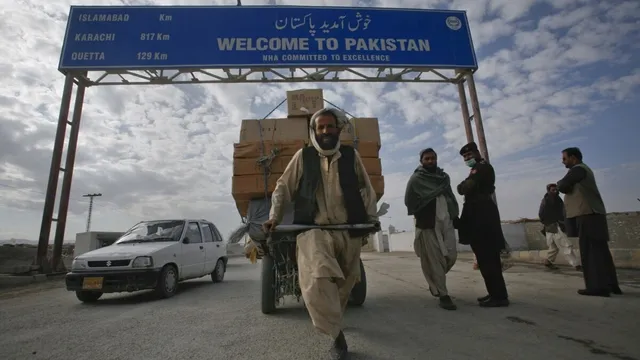News Desk, Kolkata : Durand Dilemma: Afghanistan’s Bold Rejection Reshapes Regional Dynamics
In a diplomatic bombshell, Afghanistan’s Deputy Foreign Minister, Sher Mohammad Abbas Stanikzai, has unequivocally declared the Durand Line null and void as the nation’s border, reigniting a century-old dispute and sending shockwaves through the region. This bold assertion not only challenges historical agreements but also introduces a new layer of complexity to the already fragile relationship between Afghanistan and Pakistan, with potential ramifications for regional security.
The Durand Line, established in 1893 between British India and Afghanistan, has long been a contentious issue. The recent rejection by the Islamic Emirate of Afghanistan signals a significant shift in the geopolitical landscape. Stanikzai’s statement underscores the government’s unwavering commitment to sovereignty, a stance that resonates with the Afghan people and marks a departure from previous diplomatic norms.
This development has far-reaching implications, sparking concerns over regional stability. The longstanding tensions between Afghanistan and Pakistan, compounded by the Durand Line dispute, could potentially escalate into a full-blown crisis. The rejection poses a direct challenge to the status quo, challenging the decades-old territorial understanding that has defined the Afghanistan-Pakistan border.
Pakistan, caught off guard by Afghanistan’s bold move, now faces a dilemma. The rejection of the Durand Line not only strains bilateral relations but also raises questions about the effectiveness of historical agreements in the ever-evolving geopolitical landscape. The Pakistani government, initially dismissing the statement as a rhetorical flourish, now finds itself compelled to reassess its approach to its western neighbor.
The international community watches with bated breath as the Durand Line dispute adds a new layer of complexity to an already precarious situation in the region. Afghanistan’s rejection challenges not only the historical agreement but also the delicate balance of power in South Asia. As neighboring nations recalibrate their strategies, global powers must navigate the shifting sands of regional dynamics to prevent potential fallout.
One key concern is the impact on the Afghan peace process. With the Durand Line dispute taking center stage, negotiations between the Taliban-led government and various stakeholders, including the international community, could face significant hurdles. The rejection of the border by Afghanistan adds a layer of complexity to an already intricate peace puzzle, raising questions about the feasibility of lasting stability in the war-torn nation.
The Durand Dilemma also has broader implications for the stability of Central and South Asia. As Afghanistan asserts its sovereignty, other regional players such as Iran, India, and China must reassess their relationships and strategies. The potential for a ripple effect across borders creates a volatile situation, demanding careful diplomatic navigation to prevent further escalation.
In response to Afghanistan’s rejection, Pakistan may explore diplomatic avenues to address the issue. The international community, including the United Nations, could play a pivotal role in mediating discussions between the two nations, urging a peaceful resolution to prevent further destabilization in the region.
In conclusion, Afghanistan’s bold rejection of the Durand Line as its border sets the stage for a potential geopolitical shift in South Asia. The implications for bilateral relations, regional security, and the Afghan peace process are profound. As the international community grapples with this new reality, diplomatic finesse and strategic engagement will be crucial in steering the region away from the brink of a crisis.
DISCLAIMER
Our news media denounces any form of bias and disapproves of sensationalism. The disseminated news is entirely educational and aimed at social awareness. Our media maintains absolute impartiality, adhering solely to the purpose of education and social consciousness.


